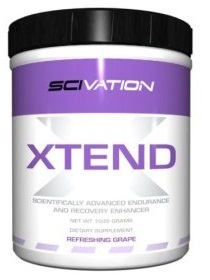Question
 I’ve been struggling to make it through long workouts. Someone at the gym told me to take BCAAs every day. Is this good advice?
I’ve been struggling to make it through long workouts. Someone at the gym told me to take BCAAs every day. Is this good advice?
Answer
Yes, and here are the basics about these all-important supplements. There are three branched-chain amino acids (BCAAs): leucine, isoleucine and valine. All three are essential amino acids, meaning that they must come from the foods we eat because the body cannot synthesize them from other amino acids.
BCAAs serve very important purposes in the body.
First, high levels of BCAAs in blood help conserve stores of glutamine, a nonessential but major amino acid with regard to muscle growth. Second, BCAAs serve as a significant fuel source for skeletal muscle during periods of metabolic stress. If you are exercising intensely, you are experiencing metabolic stress. When the body is under stress, BCAAs act directly on muscle cells and promote protein synthesis (muscle growth)–the goal of all bodybuilders. Third, BCAAs help prevent protein catabolism (muscle breakdown) by acting as a readily available fuel source for hard-working muscles during intense exercise.
An exciting new theory about the ratio of tryptophan to BCAAs in the bloodstream may give you another reason to supplement with them.
Tryptophan is an amino acid that serves as a precursor to the neurotransmitter serotonin. Elevated levels of serotonin are closely associated with fatigue. By ingesting BCAAs, the proportion of them to tryptophan is increased, which means proportionally less serotonin and, in turn, a reduced feeling of fatigue. Supplement with BCAAs and you may be able to finish your long intense workouts because you might not fatigue as quickly.
Super supplement
BCAAs are definitely worth considering as part of your supplement regimen, but they can be expensive. Luckily, BCAAs are found in foods, as well. The best dietary sources are red meat, dairy products, eggs and whey protein.
When to take them
Supplemental BCAAs range from one gram (g) up to 10 g per dose. Early in the day, 30 minutes prior to intense exercise and again immediately postworkout, take dosages of 5-10 g.
Author: Steve O’Reilly
COPYRIGHT 2005 Weider Publications
COPYRIGHT 2008 Gale, Cengage Learning










